Coronavirus: Who’s to blame when ordinary folk plunder supermarket aisles for toilet paper?


No. It reveals something about a few people, about the kind of people they are, not just in a crisis.
But supermarket shelves stripped bare by panicked shoppers right around the world might tell us something about more of us, if we dare think about it.
Some put the panic down to stupidity. We are not in Venezuela, after all; there are no systemic shortages, only those brought on by hoarding shoppers.
Pauline Hanson says we are too precious, too soft to imagine a world without Sorbent. She’s not wrong. Most don’t have any experience of using strips of newspaper. And many of us were in primary school when the last recession hit. Economic complacency and consumer convenience are all we know.
Perhaps our lack of resilience makes us more prone than previous generations to a panicky herd mentality, reacting to what the World Health Organisation calls an “infodemic” — too much information, much of it unreliable, like social media posts of bare supermarket shelves. Facebook CEO Mark Zuckerberg has promised WHO “as many free ads as they need” to deliver facts to a spooked people. But that may not be enough to address a deeper cause of this panic.
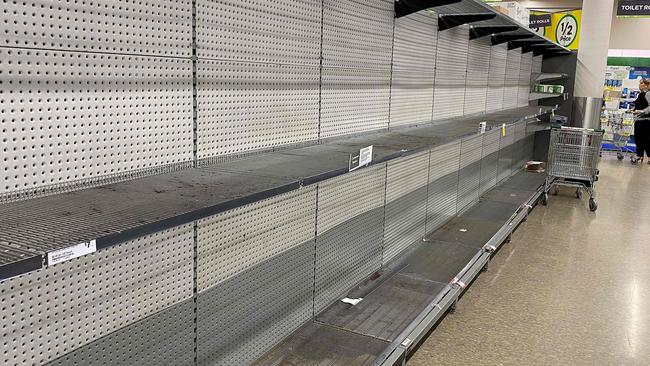
Some say it is selfishness. There are social media happy snaps of foreign students out in public, cavorting with others on a beach in Asia when they should be self-isolating before coming to Australia. A Toorak doctor returned from overseas with mild cold symptoms and went to work, seeing dozens of patients, including old people. He decided to get tested, and found he has coronavirus. Yet he wants an apology because the Victorian Health Minister said she was “flabbergasted” by his decision to treat patients?
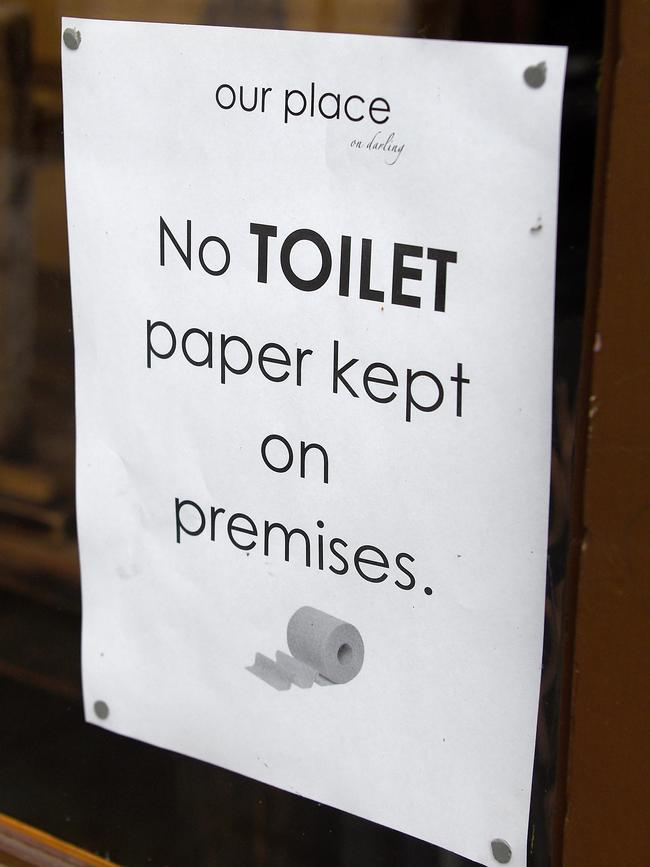
Writing in The Times last week, Clare Foges said: “To contain this virus governments around the world must rely on citizens doing as they are told: ‘Avoid large gatherings’, ‘Don’t travel unless essential’, ‘Self-isolate’. My fear is that our safety net is the willingness of other people to respect authority whether it suits them or not; to place the common good over their own busy agenda. In the age of entitlement, the age of the individual, the age of anti-establishment populism, this seems a very flimsy safety net indeed.”
Politicians tell us to stay calm, but staying calm assumes a baseline level of trust in people like them, and others who pull the reins of power in ways that affect our lives. The evidence points to our declining, even tanking, trust in institutions.
Maybe this trust deficit explains why people are taking matters into their own hands, not believing politicians who say they have matters under control. Some hoarding might be entirely rational given WHO officials are still pontificating over whether this is a pandemic.
According to Edelman’s 2020 Trust Barometer survey, major violations of the social contract in the developed world — corporate malfeasance, government corruption, fake news — have uncoupled trust from GDP growth. The report finds that the “mass population” is far less trusting of major institutions than a group described as the “informed public”.
Apart from the obvious flaw of assuming wisdom comes from a fat wallet and a university degree, why wouldn’t ordinary people have less trust in major institutions after the last decade or so?
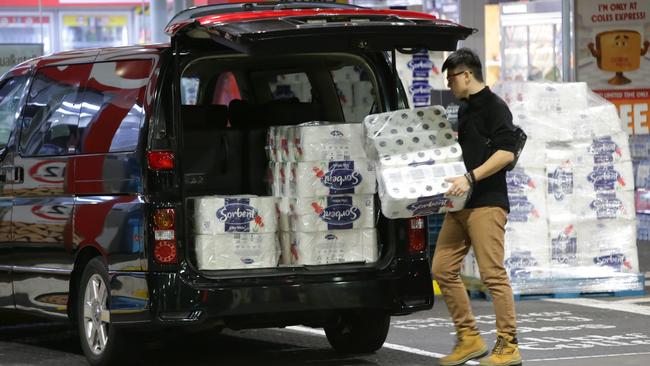
Matt Ridley’s collection of data showing the greatest improvements in living standards this past decade has not stopped a single seismic event, the global financial crisis, causing trust to corrode sharply. Governments imagined they could pass laws removing a borrower’s responsibility for a loan without consequences to the financial system. Investment banks crafted dodgy financial products that proved to be a house of cards. Rating agencies were in on the racket too, making a mockery of AAA-rated securities. And when it all came tumbling down, perpetrators escaped punishment, banks were bailed out, and the “mass population” was left to ponder why they should trust these institutions again.
As British author and commentator Douglas Murray has pointed out, when the economy goes wrong, other things go wrong too. That truth has manifest itself since the GFC in our declining trust in government. Not to mention being sceptical about redemption sought by self-flagellating CEOs preaching about the moral worth of companies, and central bankers who have depleted their ammunition to boost lagging economies.

The constant conflation of a “climate emergency” also destroys trust. Extinction Rebellion zealots who glue themselves to roads might be waved away as nutters, but when apparently serious people treat Greta Thunberg, a young girl, as an oracle of wisdom, how are we to trust these adults?
There is no trust to be found on social media either where mobs take “justice” into their own hands, viciously ripping into others. Isn’t their feral behaviour the online equivalent of women tussling over toilet paper in a supermarket aisle?
The deeper trend of tribalisation is causing distrust too. Under the rubric of identity politics, more people are fracturing into smaller identity groups, inevitably creating a larger number of “outsiders” — anyone who doesn’t fit the group identity — who are more likely to be distrusted.
Frequent, smaller episodes chip away at trust too. When politicians, especially leaders, are loose with the truth or make pie-in-the-sky promises, our trust in them and their mob will diminish.
Scott Morrison was meant to be better than Bill Shorten. But the Prime Minister has recently given Labor plenty of ammunition to attack his integrity.
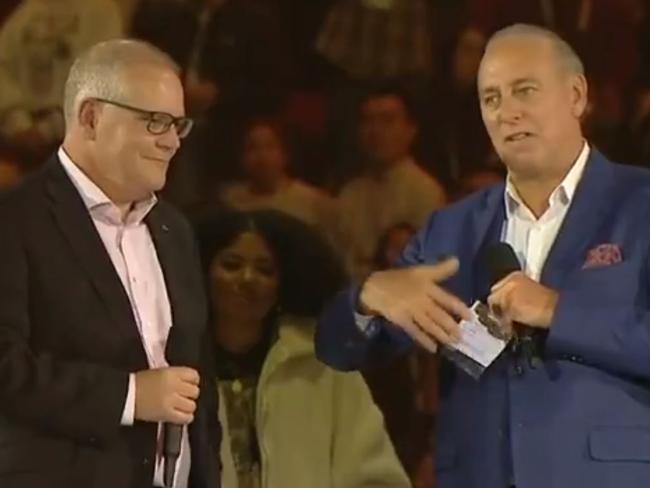
Morrison’s admission last week that he did invite Hillsong pastor Brian Houston to a White House dinner in September is, frankly, galling. Casting it off as gossip when he was questioned about it last year, he now says his mind was on more important matters. Why fess up now, in the midst of the coronavirus panic, if not to get it out while we are distracted with more important matters?
Silly games played by the PM’s office over his Hawaiian holiday and the sports rorts scandal add niggling concerns about his leadership. No one imagines that dodgy funding decisions were made by the dumped sports minister alone.
The rejoinder that it’s all just politics doesn’t wash or work. False claims of the calamity that would befall Britain if people asserted their desire to be a sovereign country helped push Brexit over the line.
Most people forgive errors of judgment; it takes longer to forgive the arrogance of lies.
In this age of heightened distrust with institutions, especially politicians, when all issues are portrayed as apocalyptic “emergencies” that only government can solve, don’t be surprised if people take matters into their own hands when another emergency, real or exaggerated, strikes.


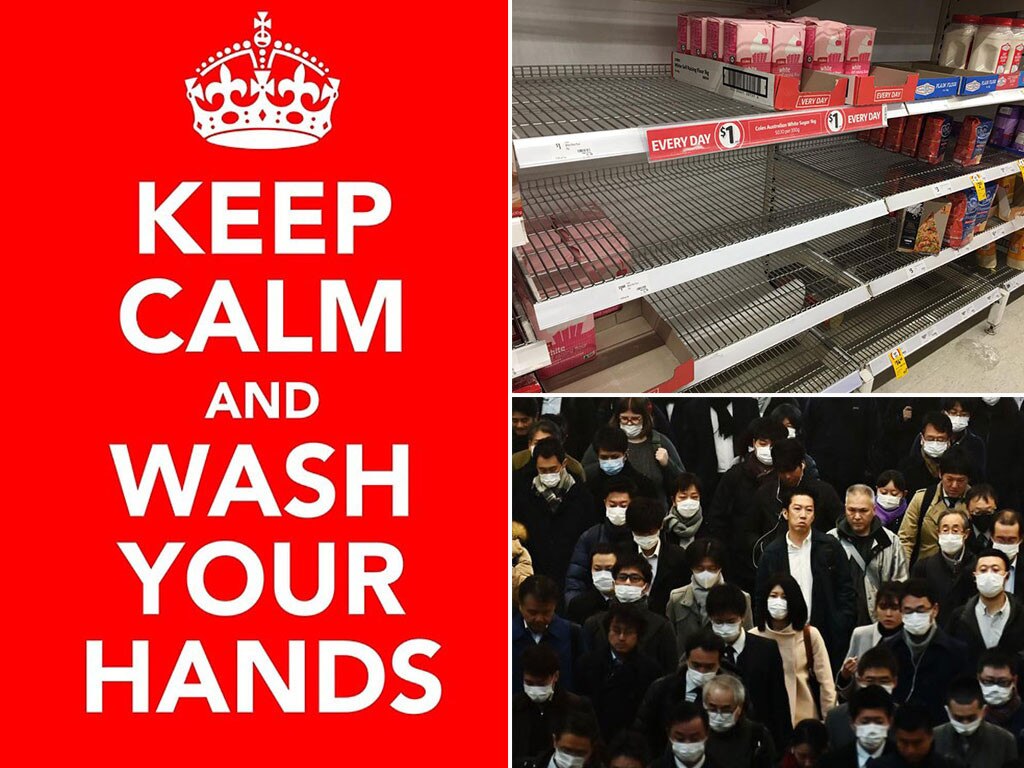




In a Woolies supermarket in western Sydney, three women brawl over a pack of toilet paper. Two of the women have a trolley already full of the stuff. In another scuffle, a young woman with her own trolley laden with loo paper fights with an older woman over another pack. A man is in jail, accused of grabbing a customer by the throat, and trying to grab a police officer’s gun after another tussle over toilet paper. Do these episodes say anything about us?